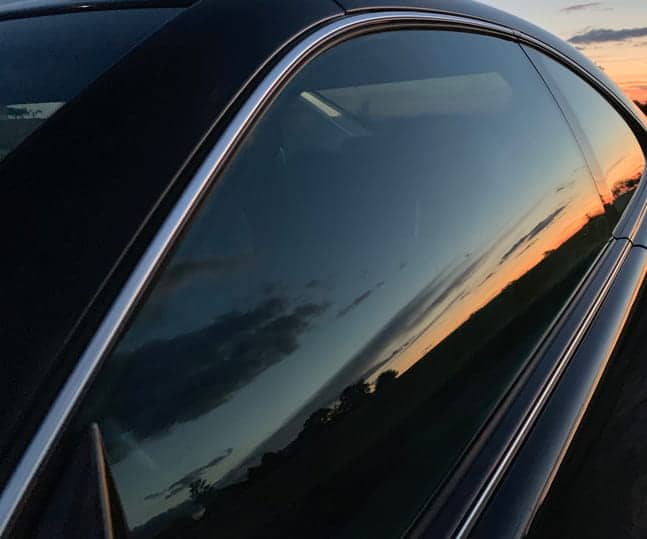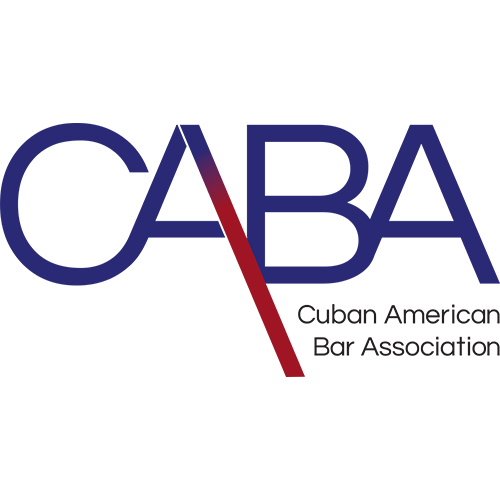Window Tint Laws in Florida

Tinted windows offer both aesthetic appeal and practical benefits. They reduce glare while driving, enhancing safety by helping prevent accidents.
Additionally, tinted windows provide privacy by shielding the interior from prying eyes, lowering the risk of theft.
To balance these benefits with road safety, Florida has established window tint laws that limit how dark your windows can be.
These regulations help ensure drivers maintain adequate visibility, reducing the chances of accidents caused by overly dark tints.
If you’ve been in an accident with a vehicle with tinted windows, Bernstein & Maryanoff can help determine if tinted windows were a factor. We help Florida drivers get justice after an accident.
Contact Bernstein & Maryanoff, Injury Attorneys, for a free consultation.
Basic florida window tint laws
Tinted window laws in Florida determine how much visible light transmission (VLT) is required for each window.
The VLT percentage determines the amount of light blocked by the tint. The higher the VLT, the more light that passes through the window.
Key Updates to Florida Window Tint Laws
As of 2025, Florida law prohibits motorists from tinting their entire windshield. Drivers must comply with the VLT minimums and reflectivity requirements of their vehicle type.
What Is the Legal Tint in Florida for Different Vehicle Types?
Sedans and coupes are shorter than SUVs, trucks, and vans. For example, the height of the 2025 Toyota Camry is 56.9 inches, while the height of the 2024 Toyota Rav4 is 68.4 inches. The 2024 Ford F150 is 79.8 inches high.
Vehicle height affects the angle of light entering the vehicle, which is a factor when determining how much VLT is needed to operate a vehicle safely.
Regardless of vehicle type, those with medical exemptions can have tinted windows with VLTs below the legal minimum.
1. Windshield
The law allows non-reflective tint above the automotive safety standard one line (AS-1), a dotted line five inches from the top of the window. These Florida window tint laws apply to cars, vans, and SUVs.
2. Front Side Windows
Under Florida’s tint laws, the minimum VLT requirement for side windows on cars, SUVs, and vans is 28%.
3. Back Side Windows
The minimum VLT for back side windows depends on the vehicle type. The minimum VLT requirements are as follows:
Cars: 15%
SUVs: 6%
Trucks: 6%
Vans: 6%
4. Rear Window
The legal tint in Florida for rear windows matches the minimum VLT requirements for back side windows. Cars must have a VLT of at least 15%, while SUVs, trucks, and vans must have a VLT of 6% or more.
Reflectivity Regulations: What You Need To Know
There is less glare for people driving vehicles with tinted windows; however, if the tint is reflective, it can cause glare for those driving near the vehicle with tinted windows.
Glare reduces their visibility and contributes to unsafe driving conditions.
Front side window tint reflectivity must not exceed 25% for cars, SUVs, trucks, and vans.
Rear side window tint reflectivity must not exceed 35% for cars, SUVs, trucks, and vans.
What Is Illegal Tint and Negligence Per Se in Florida?
Negligence occurs when someone does not demonstrate basic standards to ensure safety. When an individual does not comply with laws or regulations, and their lack of compliance causes harm to another, they may be found guilty of negligence per se.
A driver who does not comply with window tint laws could be charged with negligence per se if the window tint contributed to or caused an accident that harmed another person.
Although violating Florida’s tint laws may not conclusively prove negligence, the tint can be used to build a case.
Medical Exemptions for Tinted Windows
Some medical conditions require individuals to limit their exposure to light. For example, lupus causes photosensitivity.
Individuals with medical conditions that require them to limit their light exposure can get medical documentation from a licensed physician and apply to the Florida Department of Motor Vehicles for a medical exemption to Florida’s tint laws.
Although a medical exemption allows individuals to have windows with a lower VLT, it does not guarantee that they will not face legal repercussions if their window tint causes an accident.
Drivers must still ensure they have enough visibility to operate their vehicles safely. Failing to do so could support a negligence claim.
What Happens If You Violate the Tint Law?
Florida law enforcement officers use a tint meter to measure a window’s VLT. Tint meters are verified for accuracy annually. If they reasonably suspect a vehicle violates Florida law, law enforcement officers can stop the vehicle to measure the tint.
Those operating vehicles that do not comply with the tint laws can be charged with a non-moving violation.
Penalties for Illegal Window Tint in Florida
Florida will not allow you to register a vehicle with illegal window tint unless you have a medical exemption.
Drivers violating Florida tinting laws receive a ticket and must appear in court. You’ll be fined if you’re found guilty. Fines for a first-time offense are up to $116. Repeat offenses could result in higher fines and points against your license. You can be ordered to remove your window tint and demonstrate compliance with a vehicle inspection.
Illegal window tints could impact your insurance rates because of the increased risk of an accident.
How Illegal Tint Can Cause or Contribute to Accidents
A low VLT can prevent you from seeing road signs, traffic signals, pedestrians, bicyclists, obstacles on the road, and other vehicles. It also reduces your visibility at night and when it’s overcast. You’re more likely to be in an accident if your visibility is reduced because you can’t see changing conditions while driving.
Excessive window tint creates monotony because drivers have less visual stimulation. This can result in what’s called “highway hypnosis,” which also increases the risk of an accident.
Excessive tint can also cause glare for other drivers and impair their vision, increasing the risk of an accident.
How To Prove Negligence With Illegal Window Tint
Suppose you’re in a car accident, and another driver has tinted windows. A Miami car accident lawyer will obtain police reports and records for prior tickets issued to that driver. Police use tint meters to measure the window tint and record this information when they issue tickets.
Insurance adjusters and accident recreation specialists can evaluate the position and height of vehicles to determine if the VLT reduced visibility or impaired another driver’s visibility by causing glare.
Your lawyer can build a case against a driver if there’s a connection between the window tint and the accident. Prior window tint offenses will support a case for negligence because they prove the driver was aware they were violating Florida tint laws but did not have the tint removed. In that case, your lawyer can argue that the driver knowingly put themselves and others in harm by operating an unsafe vehicle and is liable for your accident.
However, it’s important to note, if you were operating a vehicle that did not comply with the state’s window tint laws, your insurance company may not cover all the damages from the accident.
How To Choose a Legal and Safe Window Tint
Check the window tint and reflectivity when purchasing a new car to ensure the tinted windows comply with state laws. Have a mechanic check the tint when inspecting a used car you’re considering buying, or you can purchase a tint meter to check the tint yourself.
Ask tint installers about the legal requirements before hiring someone to tint your windows to ensure they know the tint laws.
Seek Legal Help From Bernstein & Maryanoff When Tint Is a Factor
You can protect yourself after an accident by contacting a Miami personal injury lawyer and taking photos of the other vehicle’s windows. You should also ask the police to measure and document the window tint.
Bernstein & Maryanoff’s legal team will investigate your accident to determine if tinted windows were a factor. We will fight for accident victims to receive the maximum compensation allowed after an accident caused by window tint law violations.
Get expert legal advice now. Call 1-800-429-4529 for your free consultation
FAQ
What’s the Darkest Legal Tint in Florida?
Florida law allows the lowest VLT for rear and back side windows in SUVs, trucks, and vans to be 6%.
Can You Have 20% Tint in Florida?
Rear windows and back side windows can have a 20% VLT.
Can Law Enforcement Officers in Florida Pull You Over for 5% Tint?
Law enforcement officers who suspect your window tint violates state laws can pull you over. You can be ticketed for a 5% tint in Florida.
What Is the 25% Window Rule in Florida?
Front windows in cars, SUVs, trucks, and vans must not exceed 25%.
Can You Tint Your Entire Windshield in Florida?
Florida law prohibits tinting the entire windshield. Only the section above the AS-1 line may be tinted.
Do Florida’s Window Tint Laws Apply To Out-Of-State Vehicles?
Florida’s window tint laws apply to vehicles registered in Florida. You do not have to adjust your window tint when visiting the state; however, if you move from another state and seek to register your vehicle, you may be required to remove the tint if it does not comply with Florida laws.
Citations:
Clougher, D. (2024). Average Car Width, Length, and Height: How Much Bigger Are Modern Cars?
Florida Highway Patrol Policy Manual. (2021).
Florida Window Tinting Laws. (2025).
Key Updates to Florida’s Window Tint Laws for 2025. (2025).
Understanding Florida Window Tint Law: What You Need to Know. (2025).
Our Miami Law Firm Location
Address:
9415 Sunset Drive
Suite 226
Miami, Florida 33173





